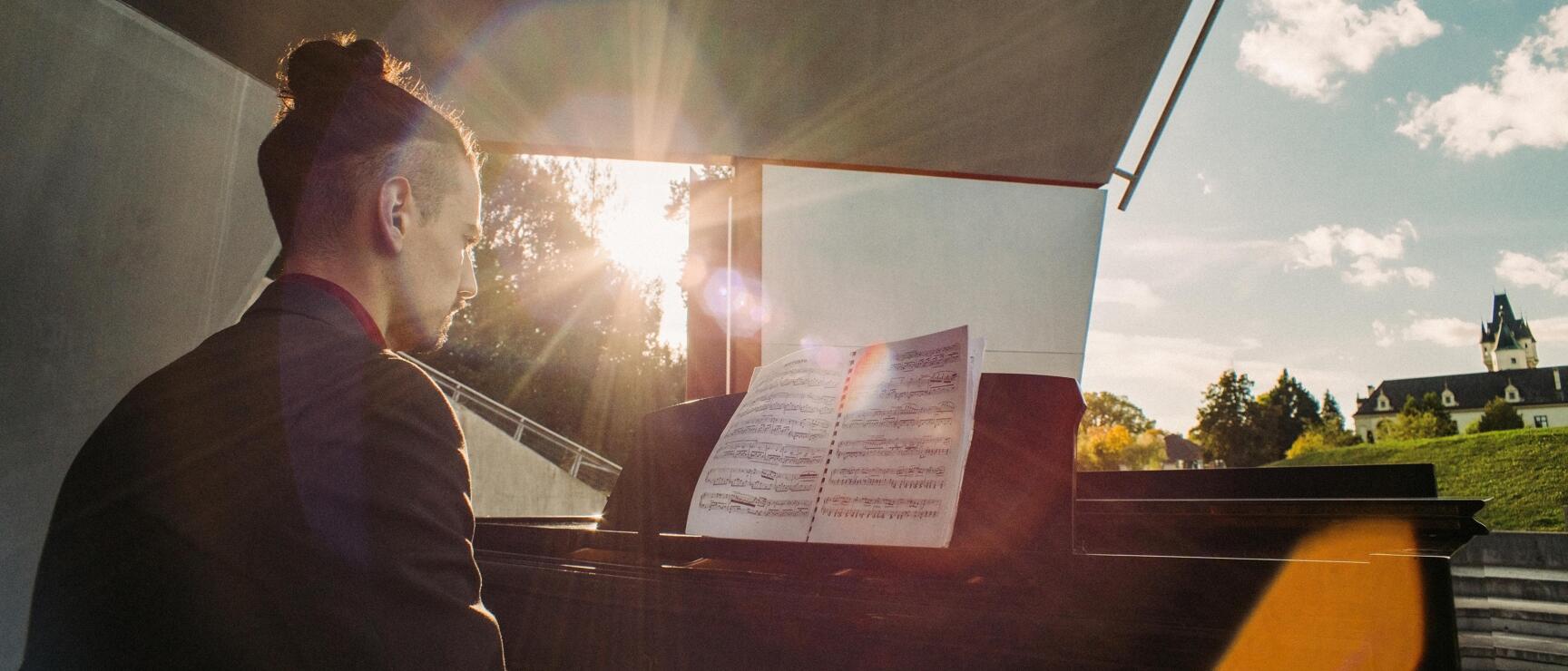
Music in Austria
Classical or modern, in magnificent music halls or outdoors
Austria - the land of music
Austria has a deep historical and cultural connection to music. Here, music is not only an art form of the highest order, but its enjoyment is considered an attitude to life and an essential part of identity. Above all Vienna - as the "musical capital of the world" - is at the forefront when it comes to attracting international attention.
Music in Austria plays all the tunes
The Salzburg Festival takes place every year in Salzburg, while the Bregenz Festival is held every summer on Lake Constance in Vorarlberg. Opera, theatre and concert performances attract music lovers with the highest expectations. People enjoy the liveliness of bygone eras as well as the contemporary one, whether at the Grafenegg Festival or the Saalfelden Jazz Festival. Genuine folk music also plays a central role, with the sounds of yodelling and "Stubenmusik" (small music gatherings) deeply rooted in the Alpine regions.
Music in Austria's provinces
Where music plays first fiddle in Austria
World-famous Austrian musicians
What can you do to protect the environment on your holiday?
Eco-concerns don't take a break when on holiday. Here are some things you can do:
Book accommodation options with an environmental certificate
Travel to and from Austria by train
Use public transport: underground, trams, bus, overground (S-Bahn)
Explore the city with rental bikes
Use the bike rental service at your hotel
Carry a refillable drinking bottle with you
Recycle your waste properly (paper, packaging, glass, etc.)
Avoid daily room cleaning service and towel changes at the hotel